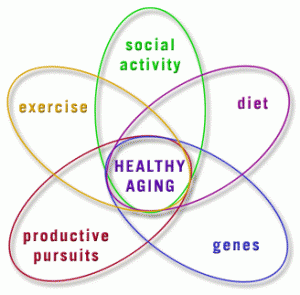Healthy Aging: Essential Tips for Wellness

Healthy Aging: Essential Tips for Wellness
As we navigate the journey of life, healthy aging becomes a significant priority. It involves nurturing not only physical health but also mental and emotional well-being. Implementing certain practices and lifestyle choices can contribute significantly to aging gracefully and maintaining a high quality of life.
Prioritize Nutrition and Balanced Diet
A cornerstone of healthy aging is a well-rounded, nutritious diet. Embrace whole foods rich in vitamins, minerals, and antioxidants. Incorporate plenty of fruits, vegetables, lean proteins, and whole grains into your meals. Adequate nutrition is crucial for supporting bodily functions and combating age-related health issues.
Stay Physically Active and Exercise Regularly
Physical activity is crucial for maintaining strength, flexibility, and overall health. Engage in regular exercise that suits your abilities and preferences. Whether it’s walking, swimming, yoga, or weight training, staying active supports bone health, muscle tone, and cardiovascular fitness. It also aids in managing weight and reducing the risk of chronic illnesses.
The journey to healthy aging involves continuous learning and adaptation. Explore more insights and tips on healthy aging at Women’s Health and Style.
Cultivate Mental Well-being
Nurturing mental health is as vital as physical health. Engage in activities that stimulate the mind, such as puzzles, reading, learning new skills, or practicing meditation and mindfulness. Maintaining social connections and engaging in meaningful conversations also contributes to cognitive health and emotional well-being.
Prioritize Sleep and Rest
Quality sleep is essential for overall health, especially as we age. Ensure you get adequate rest by establishing a regular sleep schedule and creating a relaxing bedtime routine. Quality sleep supports cognitive function, mood regulation, and overall vitality.
Practice Preventive Healthcare
Regular health check-ups and screenings are crucial for early detection and management of health issues. Stay up-to-date with vaccinations, screenings for conditions like diabetes, cholesterol levels, and regular visits to healthcare professionals. Prevention plays a pivotal role in maintaining health and catching potential concerns before they escalate.
Maintain a Positive Outlook and Manage Stress
Maintaining a positive attitude and effectively managing stress are pivotal aspects of healthy aging. Chronic stress can contribute to various health problems. Adopt stress-relieving techniques like deep breathing exercises, yoga, or engaging in hobbies to manage stress levels effectively.
Stay Hydrated and Monitor Your Diet
As we age, the sensation of thirst might decrease, leading to dehydration. Ensure adequate hydration by consuming water and hydrating foods regularly. Also, monitor your diet to avoid excessive salt, sugar, and processed foods that can contribute to health issues.
Embrace a Sense of Purpose
Having a sense of purpose and staying engaged in life’s activities contributes significantly to healthy aging. Whether through volunteering, pursuing hobbies, or engaging in activities that bring joy and fulfillment, having a purpose enhances mental well-being and overall satisfaction.
Adapt to Changes and Seek Support
Lastly, be open to adapting to changes that come with aging. Seek support from family, friends, or professionals when needed. Embracing change and staying flexible physically, mentally, and emotionally are key aspects of healthy aging.
Embracing
